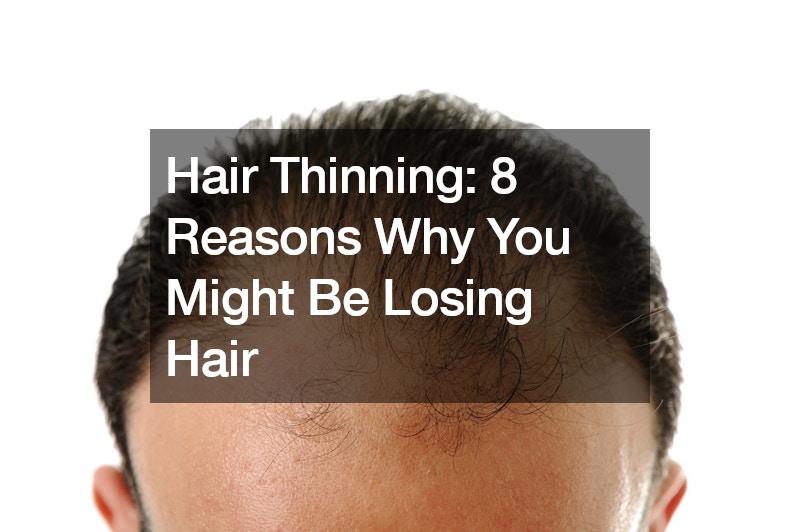Hair thinning is a common concern for many people, and understanding the reasons behind it can help in finding solutions. Whether you’re experiencing gradual hair loss or noticing thin spots on your scalp, there are several factors that could be contributing to this issue. In this article, we’ll explore eight common reasons why you might be losing hair and what you can do about it.
1. Over-Treating Hair: One common reason for hair thinning is over-treating your hair with various products and treatments. Excessive use of chemicals such as perms, color treatments, relaxers, and harsh shampoos can weaken the hair follicles and lead to gradual hair loss.
It’s essential to be mindful of the products you use and avoid over-processing your hair.
2. Hormonal Imbalances: Hormonal changes in the body can also contribute to hair loss. Women may experience hair loss due to hormonal fluctuations during childbirth or menopause, while men may lose hair with age due to changes in hormone levels. The hormone dihydrotestosterone (DHT) is known to trigger hair follicles, leading to hair loss.
3. Stress: Uncontrolled stress, whether psychological or physiological, can be a significant factor in hair thinning. People often experience hair loss during periods of high stress or anxiety. While physiological stress may cause temporary hair loss, managing psychological stress may require lifestyle changes to improve overall well-being.
4. Lack of Proper Nutrients: Proper nutrition is essential for healthy hair growth. A deficiency in essential nutrients such as zinc, iron, folic acid, vitamin D, and vitamin B12 can lead to hair loss. Ensuring a balanced diet rich in these nutrients can help support hair health.
5. Thyroid Disorders: The thyroid gland plays a crucial role in regulating various bodily functions, including hair growth. Thyroid disorders such as hypothyroidism or hyperthyroidism can disrupt the normal functioning of the thyroid, resulting in hair thinning. Managing thyroid conditions with proper medical treatment is essential for addressing hair loss.
6. Medication: Certain medications, such as chemotherapy drugs and those used to treat autoimmune diseases, can cause hair loss as a side effect. It’s essential to consult with a healthcare professional if you’re experiencing hair loss due to medication. They may be able to adjust your treatment plan or recommend hair loss treatments to mitigate the effects.
7. Rapid Weight Loss: Rapid weight loss, particularly significant weight loss over a short period, can result in hair thinning. This can occur due to nutrient deficiencies or the body redirecting nutrients away from the scalp to other vital organs. Gradual, sustainable weight loss is recommended to minimize the risk of hair loss.
8. Skin Infections: Skin infections and disorders affecting the scalp can also contribute to hair thinning. Conditions such as scalp psoriasis or severe dandruff can lead to inflammation and irritation of the scalp, resulting in hair loss. Proper treatment and management of skin infections are essential for maintaining scalp health and preventing further hair loss.
In conclusion, hair thinning can be caused by a variety of factors, ranging from over-treating hair to underlying health conditions. Understanding the reasons behind hair loss is the first step towards finding effective solutions. If you’re experiencing hair thinning, consider consulting with a healthcare professional or dermatologist for personalized advice and hair loss treatment options tailored to your needs.
.




